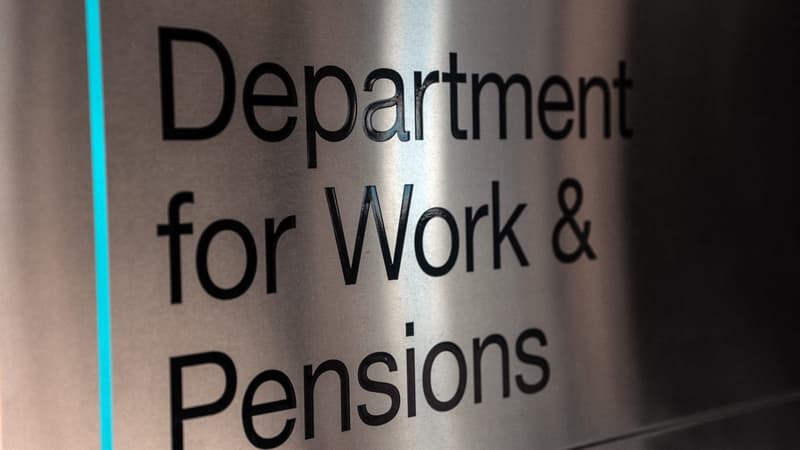“What does Theresa May (former Prime Minister of the United Kingdom), Andy Burnham (mayor of Manchester), Michel Barnier, François Bayrou and Emmanuel Macron?” It is with this issue of a joke that was commented a lot on social networks in recent days.
The answer is issued in the process by its author, John Burn-Murdoch, journalist of The British Daily: “The five showed an admirable honesty towards the necessary commitment to guarantee the financing of an aging society, and the five were duly sanctioned by their franchise by public opinion, the press, the opposition or the three.”
This publication entitled “France and Great Britain under the influence of retirees” deplores the lack of political will to face the challenge of pension financing on both sides of the channel. “The last two decades of French and British policy are a true cemetery of proposals aimed at curbing the increase in expenses dedicated to the elderly,” writes the columnist, ensuring That “public spending dedicated to the elderly increased faster and more strongly” in France and in the United Kingdom “than in comparable countries.”
The generous British “triple block”
If the issue of pensions has long been a French passion, it has also occupied more and more space in debates throughout the channel. The debates that focus mainly on a mechanism to revalue pensions considered too expensive by the political class. What is more at a time when the Labor Government, which must reveal its budget in autumn, is looking for billions of savings books to straighten particularly degraded public finances.
This mechanism is the “triple blockage” (“triple block”). Introduced in 2010, plan to review retirement pensions every year paid by the State to the highest rate between September inflation, the increase in wages (from May to July compared to the previous year) or an increase of 2.5%. Salaries increased by 4.7% between May and July throughout the channel. In other words, state pensions should increase even more (September inflation is not yet known, but it was 3.8% in August).
Specifically with this August, the global sum of “the former base pension” dedicated to men born before 1951 and women born before 1953 would be during a complete race (35 years of contributions) to 184.75 pounds per week (213 euros), against 176.45 pounds before. The “new basic pension” for the following generations would be taken to 241.05 pounds per week (278 euros) against 230.25 pounds so far. An increase of more than 500 pounds per year.
The “triple block” responsible for half of the increase in retirement expenses in the future
Although they represent almost half of British social spending, pensions currently weigh only 5% of GDP in the United Kingdom. A significantly lower level than that observed in France (14%). Particularly because the British system is based on three pillars (basic retirement, private retirement and complementary commercial retirement) and because the legal age is greater among our neighbors (66 years).
But it is above all the trajectory that is concerned: the Office for the Responsibility of the Budget (OBR) estimates that pensions should represent 8% of GDP by 2070. However, half of this increase would be linked to the “triple blockage” that would already cost 15.5 billion pounds per year by 2030. Therefore, more calls will be eliminated to this mechanism that is eliminated both cost and inhablable in the same time, the age of the age of the age of the age of the age of the age of the age of the age of the age of the age of 20. Of the same, the age of the game will be eliminated more and more than 67. 2026 and 2028, then at 68 from 2044.
However, the Secretary of State for Labor and Pensions, Pat McFadden, said that while the Labor Government remains in its place, the “triple blockage” is maintained, in particular to support the poorest retirees. And, without a doubt, also because the measure is still popular in public opinion.
Around a legal age of 74 years in 2065?
John Burn-Murdoch warns him against the risk of “progressive suffocation of British public finances” and warns that the maintenance of this mechanism is “creating a society where children are now more likely to live in poverty than their great-grandparents.”
The London -based Tax Studies Institute has also requested the abandonment of the “triple lock” that “so far has proven much more expensive than initially expected and creates great uncertainty about future expenses,” said Guardian Heidi Karjalainen. “If the economy is working well, it will cost only increase the state retirement pension according to the average income growth, while in a period of volatility, this can become very expensive, as we have seen in the last fifteen years,” he said.
For these experts, the only alternative to the abolition of “triple blockage” so that pension spending is sustainable is to further increase retirement age. A study by the International Longevity Center in the United Kingdom (ILCUK) estimates that it will be necessary to increase to 71 by 2050. The Institute of Fiscal Studies establishes 74 years in 2065.
Source: BFM TV


